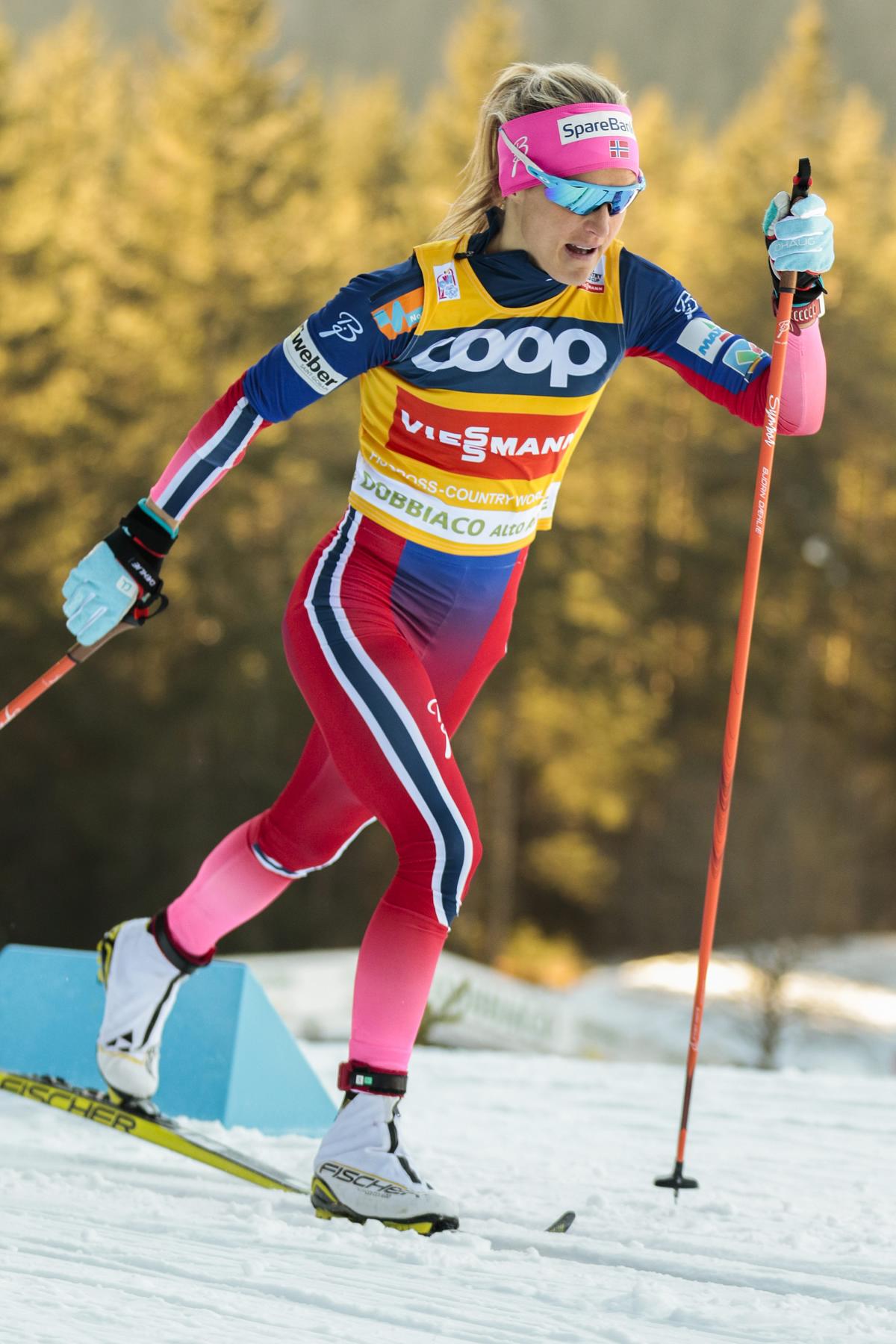
The doping case of Norwegian cross-country skier Therese Johaug has come to at least a temporary conclusion, with Anti-Doping Norway recommending a suspension of the star athlete for 14 months.
Johaug tested positive for the steroid clostebol in a urine sample taken in mid-September. She explained in a press conference that she had been using a lip cream to treat a severe sunburn, and the drug — purchased and provided to her by a team doctor from a pharmacy in Livigno, Italy — contained the banned medication, which is a common ingredient in skin treatments.
“We have recommended a 14-month ban and that will be sent to the disciplinary panel of the Norwegian Olympic Committee,” Anti-Doping Norway official Niels Kiaer told Reuters. “I expect they will have a hearing in February.”
The proposed ban would be retroactive to Oct. 18 and last until Dec. 18, 2017, two months before the Winter Olympics in PyeongChang, South Korea.
NRK reports that the casefile and the recommendation from Anti-Doping Norway will be sent to the Norwegian Olympic Committee, and that Johaug has three weeks to provide her own comment and defense to the disciplinary panel.
Until that panel issues a decision, Johaug will retain her provisional suspension. It is appearing increasingly unlikely that she will compete at World Championships in Lahti, Finland, in February.
Johaug had tried to defend herself by saying that she had trusted the judgement and knowledge of the team doctor, Fredrik Bendiksen, and thus had not felt the need to check the ingredients of the medication against the World Anti-Doping Agency (WADA) Prohibited List herself.
But Anti-Doping Norway was not convinced that she was blameless. Kaier told the Associated Press that “she could have avoided the case by checking the medicine,” since the product is required to be marked with a sticker indicating that it contained a banned substance in order to be sold in Italy. The World Anti-Doping Code has a requirement of ‘strict liability,’ meaning an athlete is responsible for whatever enters their body, whether it is intended to enhance performance or not.
However, Anti-Doping Norway didn’t completely reject Johaug’s story. The 14-month ban they recommend is a reduction compared to the four-year ban which is standard in intentional doping cases. Anstein Gjengedal, the head of Anti-Doping Norway’s prosecution panel, told NRK that the reduction was because they believed Johaug had not intended to dope.
Johaug indicated in a Norwegian Ski Federation press release that she will fight the recommended suspension.
“I take this with a heavy heart, but I accept the circumstances as they are right now,” she said. “I am focused on whats most important, which is working toward a full acquittal. I look forward to a thorough and full treatment of this case as quickly as possible.”
Anti-Doping Norway wrote that the Bendiksen might be guilty of “negligence,” and that the investigation against him would proceed.
“So far in this process I have focused on being thorough and honest,” Bendiksen said in the Norwegian team press release, noting that he had been expecting an investigation. “I have already given a detailed statement both to Anti-Doping Norway and during the Ski Federation’s press conference last Thursday. I will continue to be available for Anti-Doping Norway so that all sides of the matter receive adequate attention.”
The Associated Press translated a reaction from Poland’s Justyna Kowalczyk on Twitter, saying she looked forward to responses from the International Ski Federation (FIS) and WADA, and ending with a hashtag that translates to opening a bag of popcorn.
Chelsea Little
Chelsea Little is FasterSkier's Editor-At-Large. A former racer at Ford Sayre, Dartmouth College and the Craftsbury Green Racing Project, she is a PhD candidate in aquatic ecology in the @Altermatt_lab at Eawag, the Swiss Federal Institute of Aquatic Science and Technology in Zurich, Switzerland. You can follow her on twitter @ChelskiLittle.



